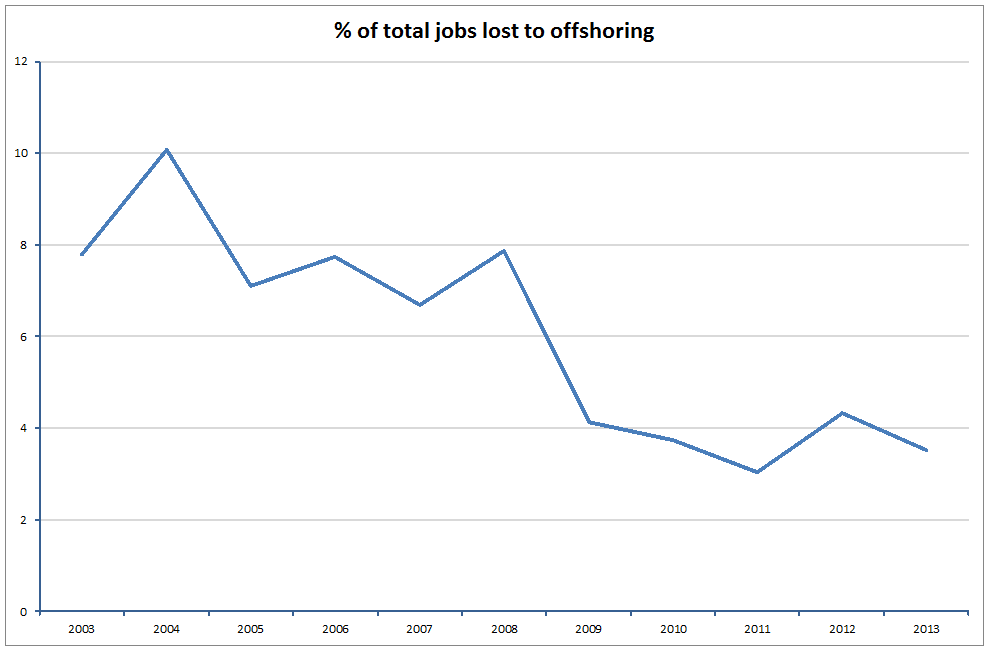
Offshoring is typically seen as the dark side of globalisation, for developed countries at least, with the leaching of jobs overseas to countries where labour costs are lower. Accumulating research indicates, however, that despite the lure for companies, offshoring is not so great a menace to developed economies as it is made out to be.
The annual report of the European Restructuring Monitor (ERM) finds that fewer than one in ten of all job losses recorded in the ERM database* each year over the past decade went abroad. The level of offshoring halved with the onset of the 2008–2009 recession and has remained low ever since.
However, loss of jobs to offshoring affected smaller, long-standing Member States to a much greater extent than the EU as a whole. In Denmark, Ireland and Portugal, 17%–18% of jobs lost in restructuring went overseas, compared to 4%–7% in France, Germany, Italy, Spain and the UK, and just 1% in Poland and Romania.
Dispelling another misconception surrounding offshoring, the ERM report notes that the main destination of jobs offshored from EU countries is not China and India (which together account for a quarter), but the newest Member States. These 12 together absorb around one-third of offshored jobs.
Business showing caution
The report reasons that the main cause of the recent slackening off is likely to be a reluctance among companies to make a major investment in moving business processes abroad during a period of economic uncertainty. But since it appears to be pro-cyclical, a return to economic growth could see a resurgence in offshoring.
One US-based analysis estimates that, in principle, in or around a quarter of jobs in the US could be offshored – a figure equally applicable to the EU. And there is broad agreement among researchers on the subject that jobs requiring higher, not lower, levels of education are at potentially greater risk of offshoring.
Future trends
This means that the character of offshoring in the future is likely to be different from its current guise. To date, it has affected mostly low-skilled jobs in developed countries; in the future, is likely to affect jobs in higher occupational groups, requiring higher education levels with above-median pay levels.
* The ERM database is a record of large-scale restructurings in the EU and Norway announced in the media. At present, it is the only European data source that enables estimates to be made of how much of large-scale restructuring job loss is accounted for by offshoring.